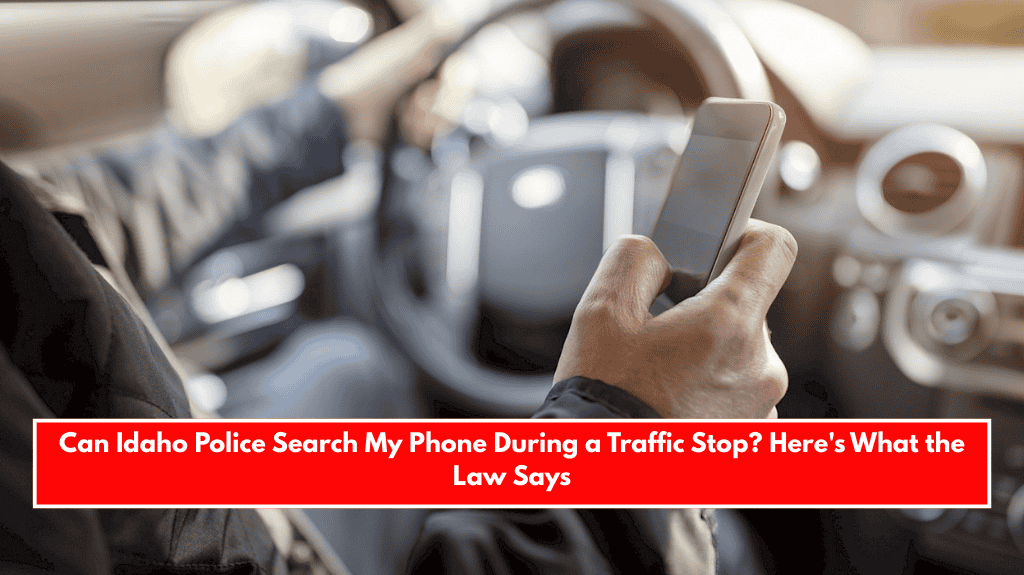If you’re pulled over in Idaho, you may wonder whether police can search your phone during a traffic stop. The answer is clear: in most cases, police cannot search your phone without your consent or a warrant.
Your Rights Under the Fourth Amendment
The Fourth Amendment protects you from “unreasonable searches and seizures,” which means law enforcement generally needs a warrant or your consent to search your property-including your phone-during a traffic stop. This protection was reinforced by the U.S. Supreme Court in Riley v. California (2014), which held that police must obtain a warrant to search the digital contents of a cell phone, even if the phone is seized during an arrest.
When Can Police Search Your Phone?
- With Your Consent: If you voluntarily hand over your phone or agree to a search, police do not need a warrant. Giving consent allows officers to examine your phone’s contents, so it’s important to understand that you are not required to consent.
- With a Warrant: If police believe your phone contains evidence of a crime, they can seek a search warrant from a judge. To get a warrant, officers must show probable cause-a reasonable belief that evidence of criminal activity will be found on your phone.
- Emergency Situations: There are rare exceptions where police may search without a warrant or consent, such as in true emergencies (for example, to prevent imminent harm), but these are limited and subject to later court review.
What About Unlocking Your Phone?
Police cannot force you to unlock your phone using your passcode, fingerprint, or facial recognition without a warrant that specifically authorizes such action. Even if your phone is seized, accessing its contents still requires a judge’s authorization unless you consent.
Idaho’s Hands-Free Law and Device Seizure
Idaho’s hands-free law prohibits drivers from holding or using a mobile device while driving, except in limited situations (such as emergencies or hands-free use). However, the law specifically states that nothing in the statute “shall be construed to authorize seizure of a mobile electronic device by any law enforcement agency”. This means that even if you’re cited for using your phone while driving, police are not automatically allowed to take or search your device.
What Should You Do If Asked to Hand Over Your Phone?
- You have the right to politely refuse a search of your phone if there is no warrant.
- If an officer asks to see your phone, you can simply say, “I do not consent to a search of my phone.”
- Do not physically resist, but clearly state your refusal.
- If you believe your rights were violated, you can challenge the search and any evidence obtained from it in court.
Key Takeaways
- Idaho police generally cannot search your phone during a traffic stop without your consent or a warrant.
- You are not required to unlock your phone or provide your passcode unless ordered by a court with a valid warrant.
- Idaho’s distracted driving law does not allow police to seize your phone simply for a traffic violation.
- Always remain calm and polite, and assert your rights clearly if asked for access to your device.
Do you have more questions about your rights during traffic stops or want to know what to do if your phone was searched? Let me know how I can help!
Sources:
- https://www.yahoo.com/news/idaho-police-legally-search-phone-175357524.html
- https://www.govtech.com/public-safety/can-police-search-your-phone-during-a-traffic-stop
- https://www.davidyannetti.com/articles/do-i-have-to-give-police-access-to-my-phone-during-a-traffic-stop/
- https://www.superlawyers.com/resources/criminal-defense/can-i-refuse-to-talk-to-the-police-and-do-they-need-a-warrant/
- https://legislature.idaho.gov/statutesrules/idstat/title49/t49ch14/sect49-1401a/














